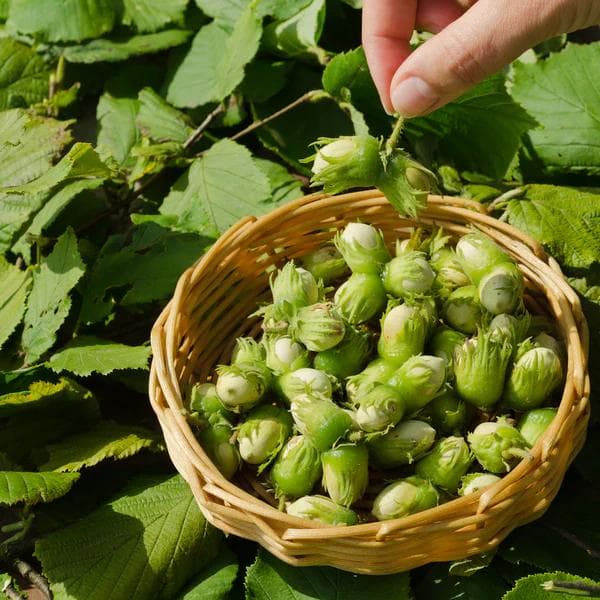The Role of Hazelnuts in Sustainable Agriculture: A Nutty Solution for a Greener Future
June 16, 2025
Hasan Can Midi

The Role of Hazelnuts in Sustainable Agriculture: A Nutty Solution for a Greener Future
In recent years, there has been a growing focus on sustainable farming practices and the importance of choosing environmentally friendly crops. While many people are familiar with the health benefits of hazelnuts, few realize how these little nuts can also play a significant role in promoting sustainability in agriculture.
Why Hazelnuts are an Eco-Friendly Crop
Hazelnuts, unlike some other nuts, require relatively little water and can thrive in a variety of climates, making them an ideal crop for farmers seeking sustainable agricultural solutions. Here’s why hazelnuts are making waves in the world of eco-friendly farming:
- Low Water Usage
In comparison to other crops like almonds or avocados, hazelnuts require much less water to grow. This is a huge advantage in regions where water scarcity is becoming a critical issue. Hazelnut trees are well-suited to dry climates and can grow in areas that may not support other types of crops. This makes hazelnuts a drought-resistant crop, promoting water conservation in farming. - Soil Health and Erosion Control
Hazelnut trees have deep, strong root systems that help to prevent soil erosion. This is particularly important in areas prone to landslides or where the soil is at risk of degradation. The roots of hazelnut trees not only stabilize the soil but also improve its structure over time, making it more fertile for future planting. By supporting the health of the soil, hazelnuts contribute to a more sustainable and regenerative farming system. - Minimal Need for Pesticides
Hazelnut trees are relatively resistant to pests, which means that farmers often don’t need to rely heavily on chemical pesticides to protect their crops. This reduces the environmental impact of hazelnut farming and helps to preserve local ecosystems. In addition, less pesticide use is better for the health of farm workers and consumers. - Carbon Sequestration
Like all trees, hazelnut trees absorb carbon dioxide from the atmosphere, helping to mitigate the effects of climate change. By planting and maintaining hazelnut orchards, farmers can actively participate in carbon sequestration efforts, contributing to a reduction in greenhouse gases. This makes hazelnuts a climate-friendly crop that supports efforts to combat global warming.
The Economic Benefits of Sustainable Hazelnut Farming
Sustainable farming practices not only benefit the environment but can also have positive economic effects. Hazelnut farming has the potential to:
- Provide Income Stability for Farmers
Hazelnuts are a long-term crop, with trees producing nuts for many years once they mature. This provides farmers with a stable source of income over time. Additionally, because hazelnuts require fewer inputs (such as water and pesticides), farmers can reduce their operational costs and increase their profitability. - Diversify Crops and Support Rural Communities
By incorporating hazelnuts into their crop rotation systems, farmers can diversify their operations and reduce their dependency on single-crop farming. This diversification can help stabilize the income of rural communities and reduce the risks associated with crop failure or market fluctuations in single crop systems. - Market Demand for Sustainable Products
With growing consumer demand for sustainably sourced products, hazelnuts grown using eco-friendly farming practices can be marketed as a premium product. More consumers are now willing to pay a premium for nuts that are grown with minimal environmental impact. This trend towards sustainable agriculture creates a new market for hazelnut farmers who are committed to environmentally responsible practices.
How Consumers Can Support Sustainable Hazelnuts
As consumers, we play a key role in supporting sustainable farming practices. Here’s how you can contribute:
- Buy Certified Organic Hazelnuts
Look for hazelnuts that are grown organically and certified by environmental organizations. These certifications ensure that the nuts are produced with minimal chemical inputs and using sustainable farming methods. - Support Local and Fair Trade Producers
Purchasing hazelnuts from local, fair trade producers not only supports sustainable farming practices but also ensures that farmers are paid fairly for their work. This can help promote ethical farming practices and support the local economy. - Reduce Food Waste
Hazelnuts are a highly nutritious and versatile food, so make sure to use them in a variety of ways to avoid food waste. Whether you use them in baked goods, smoothies, or as a snack, finding ways to incorporate hazelnuts into your daily meals can help make the most of this nutritious crop.
Conclusion
Hazelnuts are not just a delicious and nutritious snack; they also represent a sustainable agricultural solution that supports environmental health, economic stability, and responsible farming practices. With their low water usage, minimal need for pesticides, and positive impact on soil health, hazelnuts are proving to be a valuable crop in the fight for a greener, more sustainable future. By choosing hazelnuts that are grown sustainably, consumers can support this eco-friendly farming method and contribute to a healthier planet.
Written by Hasan Can Midi